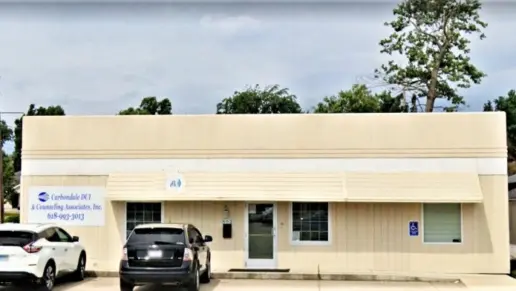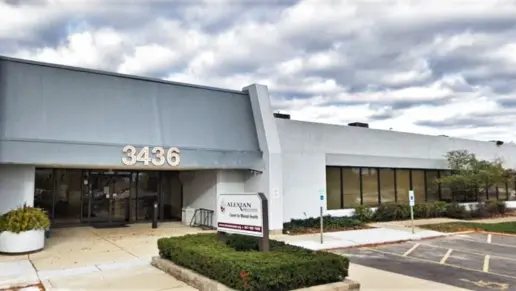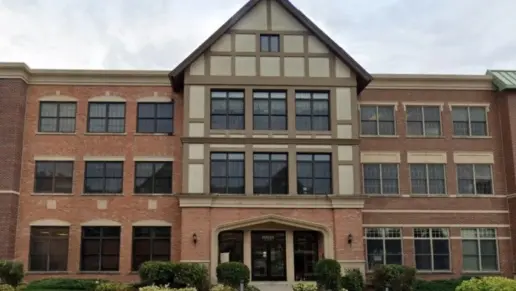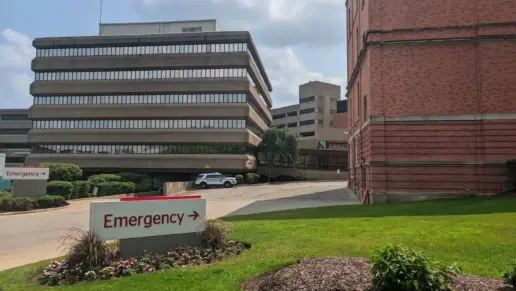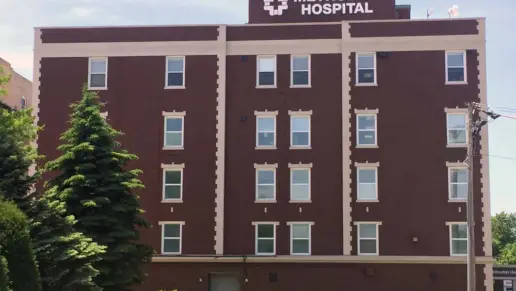About Cathedral Shelter – Higgins Halfway House
The ReVive Center for Housing and Healing (formerly Cathedral Shelter) is a Chicago, Illinois, based program. Their mission is to help the underserved find stability and recovery, which includes mental health and substance use disorder treatment. Their programs also include housing for the homeless and other services to meet daily needs and secure safety.
What they do covers a broad range of challenges, and that’s why they meet each individual where they are in their journey. Part of what they do is make referrals to appropriate programs should someone else be a better fit for your needs. Regardless, you can expect a highly personalized experience with them.
Meet at the Engagement Center
The Engagement Center serves as a community focal point for those who are or were recently homeless. It’s a place where people can meet, bond, and take care of basic necessities. But I want to draw attention to the medical services.
The Engagement Center includes twice weekly addiction and mental health services. These are a great and easily accessed way to get your needs assessed and start the road to recovery. They also have a drop-in medical services covering a variety of physical and mental health needs.
Reaching Out to the Streets
One thing I really admire about ReVive is its street outreach program. Staff members will meet with homeless individuals where they are to deliver services and introduce them to the community services available to them. This includes addiction and other healthcare concerns as well as housing and food programs.
Heal at Your (New) Home
Housing is important, not just to safety but to recovery itself. It grants stability and structure but is often far beyond the reach of those who are already homeless. Thankfully, ReVive can help.
They have several low rent apartments for permanent housing available for homeless individuals living with disabilities (including addiction), which includes rent support. You’ll also have access to additional support programs for improving your health and continuing recovery.
Rehab Score
Other Forms of Payment
Private insurance refers to any kind of healthcare coverage that isn't from the state or federal government. This includes individual and family plans offered by an employer or purchased from the Insurance Marketplace. Every plan will have different requirements and out of pocket costs so be sure to get the full details before you start treatment.
Self-pay involves paying for treatment out of your own pocket. You can use savings or credit, get a personal loan, or receive help from family and friends to fund your treatment. If you don't have insurance or your insurance plan doesn't cover a specific program, self-pay can help ensure you still get the care you need.
Addiction Treatments
Levels of Care
 Outpatient
Outpatient
 Intensive Outpatient
Intensive Outpatient
 Inpatient
Inpatient
 Sober Living Homes
Sober Living Homes
 12-Step
12-Step
 Aftercare Support
Aftercare Support
Treatments
The goal of treatment for alcoholism is abstinence. Those with poor social support, poor motivation, or psychiatric disorders tend to relapse within a few years of treatment. For these people, success is measured by longer periods of abstinence, reduced use of alcohol, better health, and improved social functioning. Recovery and Maintenance are usually based on 12 step programs and AA meetings.
Drug rehab in Illinois is designed to help people recover from addiction to a number of substances. The length of each program and its intensity tend to vary, and the plan of care is based on your individual needs.
Opioid rehabs specialize in supporting those recovering from opioid addiction. They treat those suffering from addiction to illegal opioids like heroin, as well as prescription drugs like oxycodone. These centers typically combine both physical as well as mental and emotional support to help stop addiction. Physical support often includes medical detox and subsequent medical support (including medication), and mental support includes in-depth therapy to address the underlying causes of addiction.
Substance rehabs focus on helping individuals recover from substance abuse, including alcohol and drug addiction (both illegal and prescription drugs). They often include the opportunity to engage in both individual as well as group therapy.
Programs

Adult Program

Military Program

Young Adult Program
Clinical Services
Experiential therapy is a form of therapy in which clients are encouraged to surface and work through subconscious issues by engaging in real-time experiences. Experiential therapy departs from traditional talk therapy by involving the body, and having clients engage in activities, movements, and physical and emotional expression. This can involve role-play or using props (which can include other people). Experiential therapy can help people process trauma, memories, and emotion quickly, deeply, and in a lasting fashion, leading to substantial and impactful healing.
Group therapy is any therapeutic work that happens in a group (not one-on-one). There are a number of different group therapy modalities, including support groups, experiential therapy, psycho-education, and more. Group therapy involves treatment as well as processing interaction between group members.
In individual therapy, a patient meets one-on-one with a trained psychologist or counselor. Therapy is a pivotal part of effective substance abuse treatment, as it often covers root causes of addiction, including challenges faced by the patient in their social, family, and work/school life.
Life skills trainings involve all the skills a person must have in order to function successfully in the world. These include time management, career guidance, money management, and effective communication. Truly successful addiction recovery is based on the ability to not only live substance-free, but to thrive. Life skills teaches the practical necessities of functioning in society, which sets clients up for success in life, and therefore sobriety.
Trauma therapy addresses traumatic incidents from a client's past that are likely affecting their present-day experience. Trauma is often one of the primary triggers and potential causes of addiction, and can stem from child sexual abuse, domestic violence, having a parent with a mental illness, losing one or both parents at a young age, teenage or adult sexual assault, or any number of other factors. The purpose of trauma therapy is to allow a patient to process trauma and move through and past it, with the help of trained and compassionate mental health professionals.
Staff
Kesha S. Marie Larkins
Executive Director
Sheila Sheridan
President
Steven Calderwood
VP
Douglas Hoffman
Treasurer
Susanna Craib Cox
Secretary
Erwin Mayer
Director of Development
Andrea LeFlore
Director of Programs
Eric Johanson
Director of Operations
